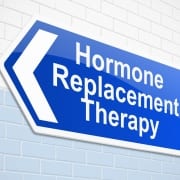Women’s Health: Making Yourself a Priority
May is Women’s Health Month and the perfect opportunity to remind women to prioritize their health. We are often so caught up in our careers, family, and doing for others; we forget to take care of ourselves. Remember, If it’s been more than a year since your last regular check-up or mammogram, get it scheduled today.
Making yourself a Priority. Here is our recommended checklist.
Women Under age 40:
- Gynecological Check-up – a first visit is recommended between ages 13-15. This first visit usually is a general health exam, usually no pap smear, and is an excellent opportunity to develop a relationship with the doctor. Follow-up appointments are recommended for issues with periods or upon becoming sexually active. If not before, annual exams are recommended for women beginning at age 21.
- Cervical Cancer Screening with Pap Smear – begins at age 21. If normal, re-screen every 3 years.
Pap Smear Co-testing for HPV – beginning at age 30. If normal, re-screen every 3-5 years based on your healthcare provider’s recommendation. - STI Screening – screening should be done once sexually active and repeated annually or as recommended by your healthcare provider to check for sexually transmitted infections.
- Breast Self-Exams – regular, monthly self-exams are recommended. While the breast cancer risk is low for younger women, being familiar with your breast tissue will alert you early to any unusual changes.
- Mammogram Screening for Breast Cancer – a baseline mammogram is recommended for women with a family history of breast cancer beginning at age 35 or 5-10 years before a family member’s age at diagnosis. Your healthcare provider will help you determine when and how often you should be screened based on your family history.
- Cardiovascular Health Assessment – including regular monitoring of blood pressure, blood sugar, and cholesterol should be performed annually.
Women Ages 40-64:
- Gynecological Check-up – annual exams are recommended. During this stage, you may begin to experience changes associated with perimenopause and menopause. It’s essential to establish a relationship and discuss these changes with your healthcare provider so they may assist you with treatments to ease your symptoms.
- Cervical Cancer Screening – every 3 years if the test is normal and/or co-test for HPV every 5 years or as recommended.
- Breast Cancer Screening – annual mammogram + monthly self-exams
- Cardiovascular Health Assessment – regular monitoring of heart rate, blood pressure, cholesterol, BMI, and possibly diabetes and thyroid function.
- Colon Cancer Screening – a colonoscopy is recommended at age 45. If normal, the screening will likely be repeated in 10 years. Any abnormalities or family history may indicate a need to repeat screening every 3-5 years.
- Osteoporosis Screening – a bone density test may be recommended based on particular risk factors and/or family history. In most cases, osteoporosis screening will begin at age 65.
Women Age 65 and above:
- Cervical Cancer Screening – if screening is normal at age 65, regular screening is no longer needed. Pelvic Exams – may be indicated at any time if symptoms such as vaginal bleeding, discharge, or pain so indicate. Some common issues such as vaginal atrophy, dryness, pain during sex, or frequent urinary infections may require treatment such as vaginal estrogen.
- Breast Cancer Screening – mammograms are recommended every one to two years or as determined by your healthcare provider, based on your history along with family history.
- Colon Cancer Screening – should be continued every 10 years unless otherwise indicated by your healthcare provider.
- Osteoporosis Screening – a bone density test is recommended at age 65 with rescreening every 2 years.
Schedule your consultation with one of our compassionate practitioners.

Deanna Woodroffe, WHNP, is the founder of Vibrant Health of Colorado and a passionate Women’s Health Nurse Practitioner with a focus on functional and integrative medicine. Early in her career, she became frustrated with the inability of traditional medicine to treat her patients’—and her own—chronic symptoms, driving her to pursue a fellowship in Anti-Aging and Functional Medicine. With over twenty years of experience, Deanna helps patients resolve complex, chronic symptoms by focusing on root causes and restoring balance to the body. Her comprehensive approach utilizes bio-identical hormone therapy, thyroid optimization, and addressing lifestyle factors like nutrition and stress to return her patients to feeling vibrant.







